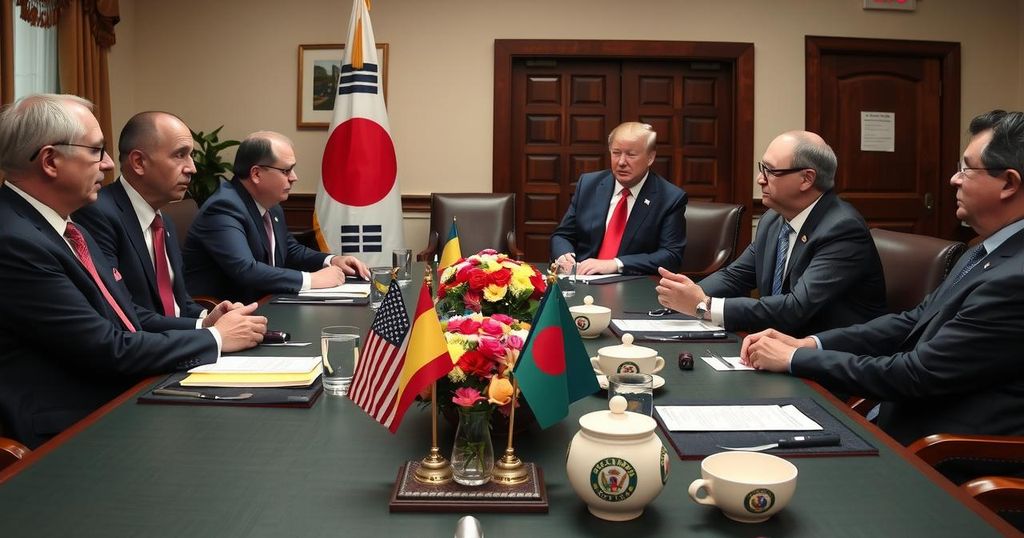The article explores the uncertainties surrounding President-elect Trump’s upcoming Korea policy, reflecting on his appointments for key national security roles and their potential implications for U.S.-North Korea relations. It highlights contrasting views among Trump’s nominees and considerations regarding South Korean defense commitments.
Uncertainty looms over President-elect Donald Trump’s foreign policy regarding Korea for his forthcoming term. There are pressing questions as to whether he will demand that South Korea finance the presence of U.S. troops, engage in direct negotiations with North Korean leader Kim Jong-un while sidelining Seoul, or reinforce security alliances with Korea as part of a broader anti-China strategy.
The choices for key national security positions hint at a mixed approach. Trump’s decision to appoint Senator Marco Rubio as Secretary of State and Representative Mike Waltz as National Security Adviser indicates a tendency towards an internationalist perspective, which is marked by a strong stance against China and a desire for a robust defense posture.
Senator Rubio possesses significant experience in Korean matters and has advocated for stringent sanctions against North Korea, criticizing its leadership for human rights abuses. He has reinforced the view that the U.S. must uphold its defense commitments to South Korea. Mr. Waltz, a veteran Green Beret, aligns with Rubio’s hardline views, particularly regarding China, and is expected to adopt a strict stance on North Korea, while also showing a willingness to modify some of his previous positions to fit Trump’s policy.
Moreover, Alex Wong, the new Deputy National Security Adviser, previously contributed to North Korean policy, suggesting an inclination towards resuming dialogue with Pyongyang. His perspective appears aligned with Trump’s previous interest in negotiations with North Korea, especially concerning sanctions and security guarantees.
Further, nominating John Ratcliffe as CIA Director raises the possibility of renewed talks with North Korea, as he has suggested that North Korea may be seeking concessions despite its nuclear ambitions. On the other hand, nominees such as Pete Hegseth and Tulsi Gabbard, who hold isolationist views, would support different approaches emphasizing direct diplomatic engagement with North Korea.
Despite potential resistance from the Senate regarding Hegseth and Gabbard, Trump may continue to pursue diplomacy with Kim Jong-un, especially in light of recent political instability in South Korea, which could prompt direct negotiations. Trump’s personal favorable assessments of Kim play a crucial role in shaping his approach, amidst a fluctuating geopolitical landscape.
The article examines the potential direction of U.S. policy on Korea under President-elect Donald Trump, particularly focusing on his selections for key national security roles. It elaborates on how these appointments can influence relations with North Korea and South Korea, framed within the broader context of U.S.-China relations, regional security dynamics, and the ongoing challenges presented by North Korea’s nuclear program. It highlights the contrasting perspectives of Trump’s nominees and speculates on the implications of their views for future engagement with North Korea and defense commitments to South Korea.
In summary, while the future direction of U.S. policy towards Korea under President-elect Trump remains uncertain, the appointments of figures like Senator Rubio and Representative Waltz suggest a preference for a strong security posture. There is also a notable juxtaposition in the views of potential nominees that lean towards either heightened engagement or isolationist strategies. Ultimately, Trump’s personal rapport with Kim Jong-un could significantly influence his approach, particularly amidst destabilizing political events in South Korea.
Original Source: www.koreatimes.co.kr






